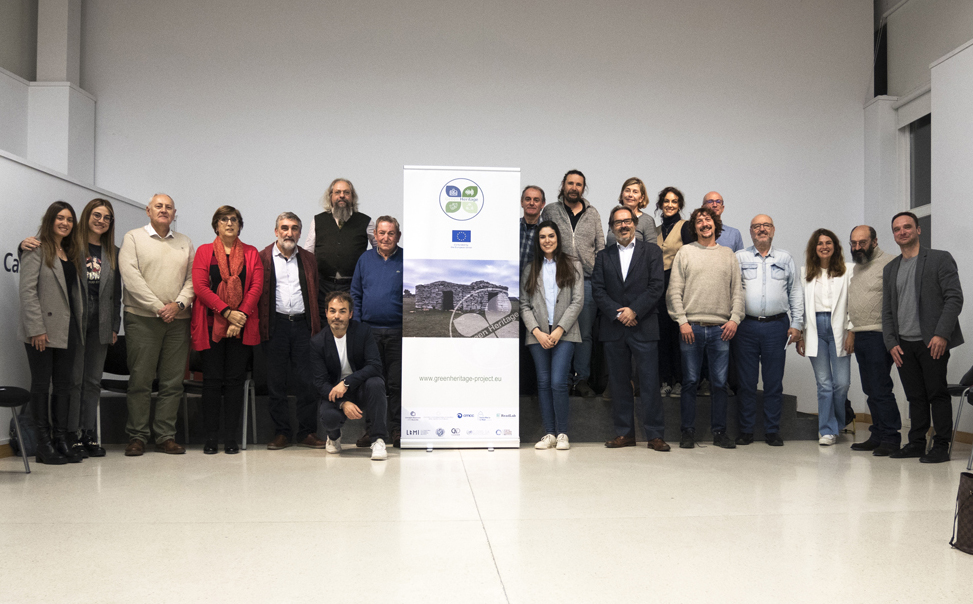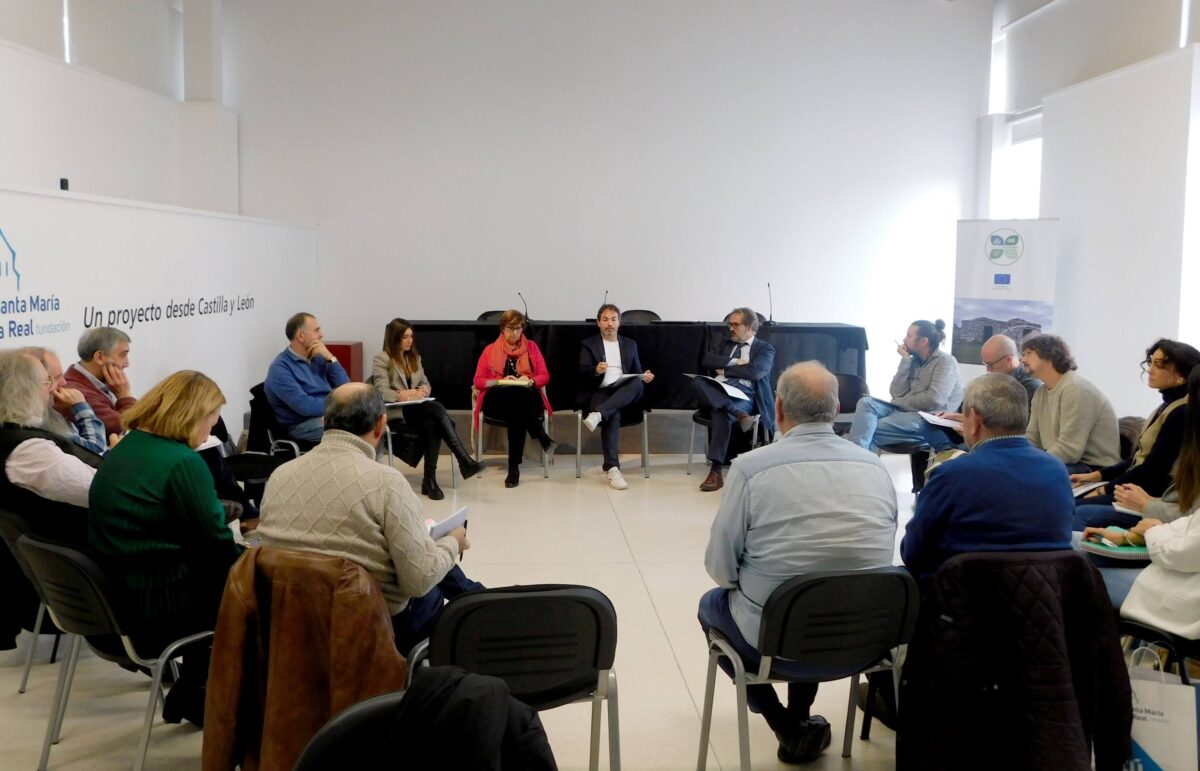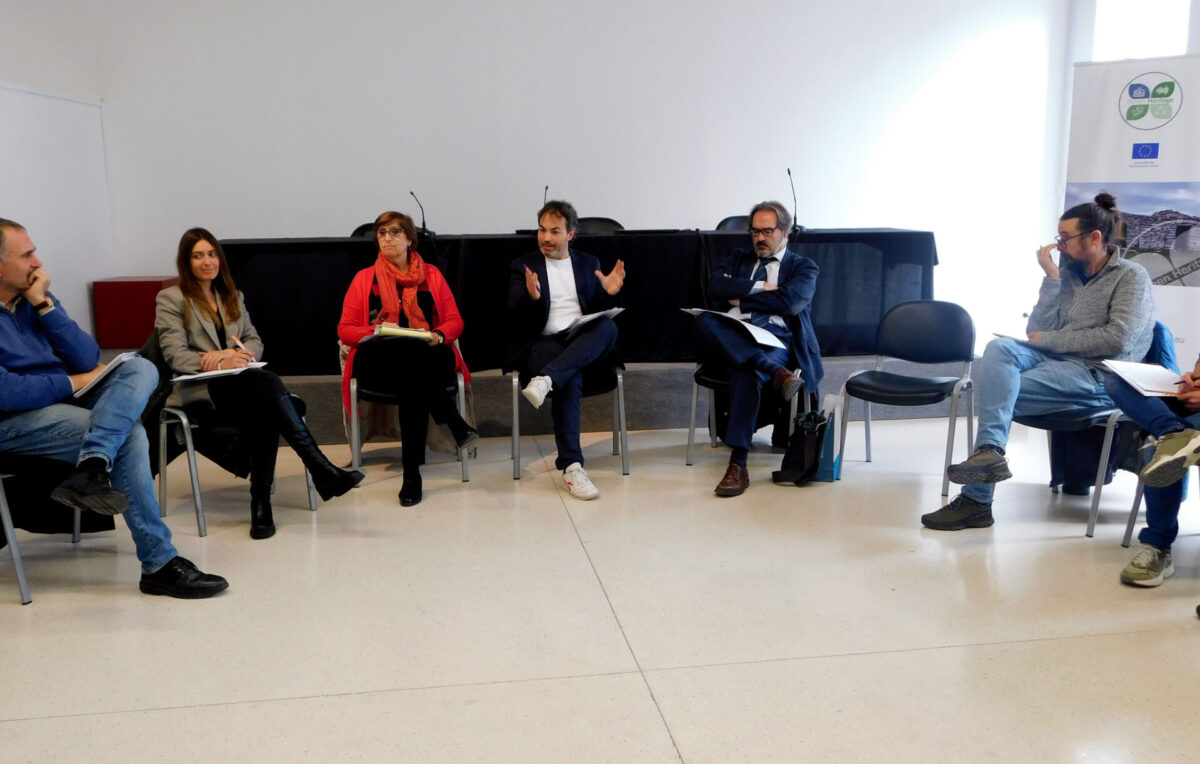The event was held on 22 and 23 November at the headquarters of the Santa Maria la Real Foundation, the Spanish partner of the GreenHeritage project. The objective was to generate an open debate between different social agents to determine the influence of Climate Change on Intangible Cultural Heritage.
Improving legislation, providing the necessary tools for management and promoting education and awareness-raising are some of the measures that experts and technicians consider necessary to curb the effects of climate change on intangible cultural heritage. These are some of the measures that experts and technicians consider necessary to curb the effects of climate change on intangible cultural heritage.
Can climate change influence traditional dance, songs or oral storytelling? How and to what extent? The influence of climate change on the landscape or on historical heritage has been analysed from different perspectives; however, little or no research has been done on how it affects rituals, festivals, dances, oral storytelling or traditional recipes – in short, intangible cultural heritage.
One of the objectives of GreenHeritage is the development of policy roundtables in the different countries of the project partners in which different members of the quadruple helix exchange experiences and points of view with other professionals and bring society closer to the importance of climate change and how it can affect intangible cultural heritage, reflections that will be planned in a future policy brief.
The first policy roundtable was held on 22 and 23 November in the Spanish town of Aguilar de Campoo (Palencia), the headquarters of the Santa Maria la Real Foundation, the Spanish partner of the project. The main conclusions of the meeting have been compiled in a document, which establishes six areas of action and several specific recommendations.
Areas of action
One of the first fields of action must be education and awareness-raising. In this regard, it is proposed that a comprehensive approach be incorporated into educational plans to address intangible cultural heritage and climate change from different perspectives, through different core subjects. At the same time, the experts consider it necessary to carry out actions aimed at an adult audience, addressing the interrelationship between sustainable practices, traditions and environmental impact.
Another point that is considered “essential” is the revision and updating of legislation, as well as policies linked to climate change, incorporating cultural heritage considerations into environmental laws, addressing different levels and carrying out continuous monitoring to evaluate their effectiveness.
To ensure the proper conservation and management of intangible cultural heritage, the creation of new tools, the development of inventories, continuous training and support for research are advocated. Likewise, it is recommended that strategies be implemented that allow for better control of tourism in order to avoid a negative impact on the natural environment or intangible heritage. It also stresses the importance of communication and dissemination to generate interest and raise awareness of the value of heritage and its relationship with climate change.
Recommendations



